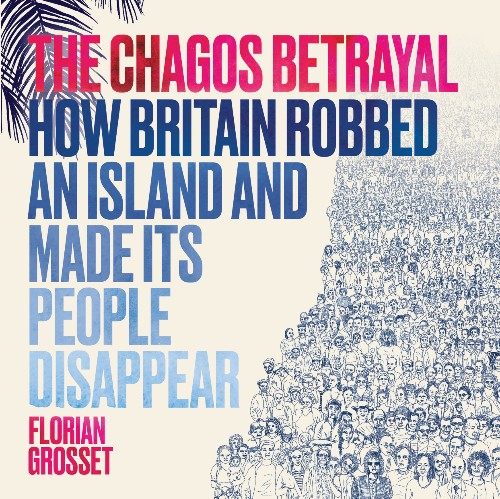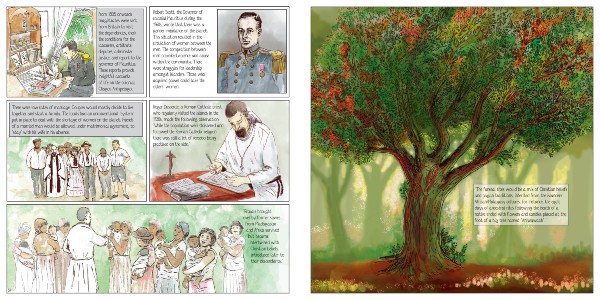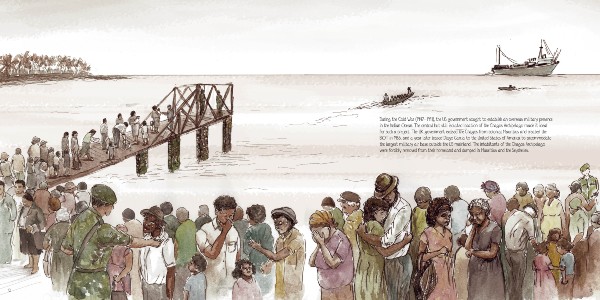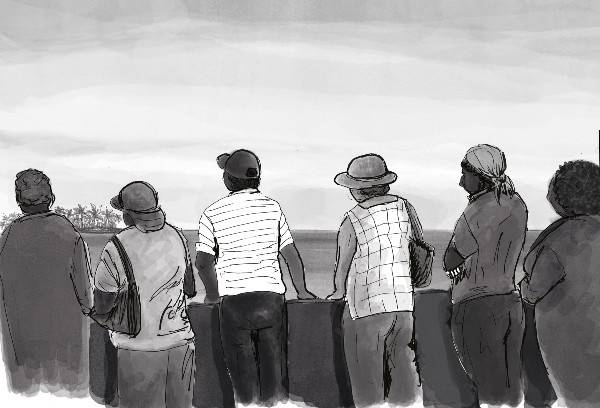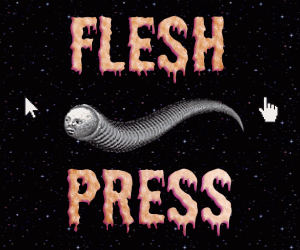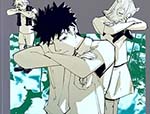The Chagos Betrayal: How Britain Robbed an Island and Made Its People Disappear may seem like an unwieldy title for a book but sometimes getting the point across from the outset in the bluntest and most direct manner is far more important than titular economy. Florian Grosset’s account of yet another shameful part of Britain’s past depicts events from recent history with repercussions that are still being felt decades on for those affected. The truths it brings to the surface are shocking, outrageous and devastating. Yet sadly, in a country where something as disgraceful as the Windrush Scandal was allowed to unfold, not even remotely surprising.
To put things into context the Chagos Archipelago comprises seven atolls and 60-plus islands in the Indian Ocean. From the early 18th century they, along with Mauritius, were administered by Britain. In the 1960s Cold War manoeuvring led to the US looking to maintain a presence in the Indian Ocean, something the British government were all too happy to facilitate. Between 1965 and 1973, to make way for an American military base on Diego Garcia (the largest of the Chagos islands), the inhabitants of the archipelago were forcibly removed from their homes in the cruelest of circumstances. Thousands born and bred on the islands were evicted and relocated to Mauritius and the Seychelles with no resettlement plan. The US lease on Diego Garcia remains in place until 2036.
If those stark facts aren’t horrifying enough then consider that the manipulative expulsion of the population meant leaving their homes, possessions, and a way of life and culture that had existed for two centuries. Grosset takes us back to the early inhabitation of the area, the emancipated slaves who settled there, and the communities that built up there over the decades in order to underline the unspeakable injustices that the British inflicted on them in the 1960s and ‘70s. Those displaced suffered incredible hardship, moved from an idyllic, self-supporting life on the islands to one of unemployment, social isolation and deprivation in their new environment.
Tracing the plight of the displaced Chagossian diaspora, Grosset sympathetically charts the progress of their various legal attempts across the decades to allow them to return to their homeland and the machinations to stall their efforts at every step. It’s a heartbreaking tale as we realise that time is running out for the ever diminishing number of originally expelled Chagossians and that the authorities concerned are well aware of this. Especially given that as recently as 2019 the International Court of Justice upheld a previous ruling that the UK should relinquish its control of the Chagos.
While Grosset’s approach often veers more towards graphic essay, and The Chagos Betrayal does by necessity often rely on large textual information dumps, this remains a compelling and vital account of a national scandal that has gone comparatively under-reported over the years. Grosset’s impressionistic art and considered use of colour brings us fully into the tragedy of the situation, and her physical characterisation immerses us in the despair of those whose lives were so callously ripped away from them. While first hand accounts are rarer here (hardly surprising given the timeframe) when they do appear they form an even more intimate connection between reader and page.
The Chagos Betrayal: How Britain Robbed an Island and Made Its People Disappear is a book that will make you feel angry, outraged and appalled in equal measure. And so it should. Powerful and deeply moving, this is an unforgettable piece of graphic journalism.
Florian Grosset (W/A) • Myriad Editions, £16.99
Review by Andy Oliver





